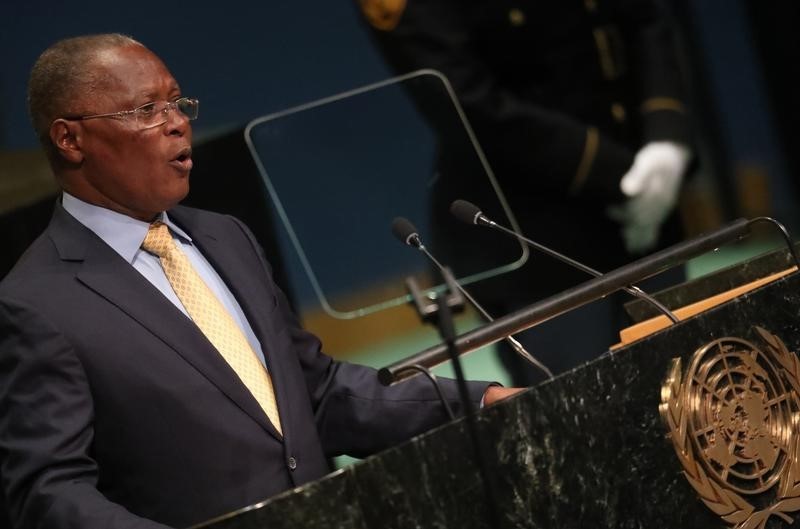By Hugh Bronstein
UNITED NATIONS (Reuters) - Haiti's October presidential election will be important to easing poverty, acting President Jocelerme Privert told the United Nations General Assembly on Friday, as the United States toughens its stance toward a wave of Haitian immigrants.
More than 5,000 Haitians have entered the United States without visas this fiscal year through Oct. 1, according to Department of Homeland Security officials, up from 339 in fiscal year 2015.
"The credibility of the upcoming election is vital to break with the cycle of instability and uncertainty which has beset my country for too long," Privert said.
He said the government was aware of the many Haitians leaving to seek a better life elsewhere and that the Caribbean nation would need more international support after the Oct. 9 election.
"The new leaders will urgently need to address the structural problems which persistently undermine Haiti's effort to move out of underdevelopment," Privert said.
The United States, responding to a surge in Haitian immigrants, will end special protections for them dating back to a devastating earthquake there in 2010, the Department of Homeland Security said on Thursday.
If conditions improve at home, fewer Haitians would risk the hazardous journey to the United States and Canada.
In February, Michel Martelly stepped down as president of Haiti without a successor, but only after a deal was reached for a provisional government. In the running next month is Maryse Narcisse, a medical doctor and longtime activist who could become the first woman to be elected Haiti’s president.
U.S. immigration authorities along the Mexico-California border are struggling to find enough resources to interview and temporarily detain Haitian migrants, most of whom are travelling from Brazil.
Panamanian President Juan Carlos Varela said this week that stability in Haiti is the best way to ease the flow.
"We have to pay attention to the electoral process in Haiti, to support its institutions and its economy. If not, there will be the new crisis in America. It's not going to be people from Central America or Mexico any more. It will be Haiti," Varela said in an interview.
Many Haitians who found work in Brazil through a visa program offered after the earthquake are starting to leave because of a recession and shrinking work opportunities now that the Rio 2016 Olympics has come and gone.

Central America has been flooded with Haitians trying to make their way north, forcing cash-strapped countries to build refugee centres.